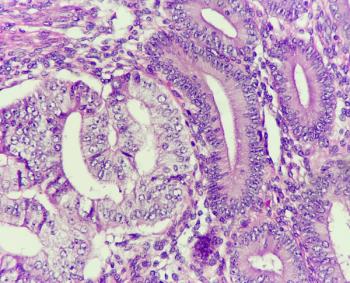
Experts warn that removing the COVID-19 vaccine from CDC guidelines endangers maternal and neonatal health and undermines evidence-based medical practice.

Experts warn that removing the COVID-19 vaccine from CDC guidelines endangers maternal and neonatal health and undermines evidence-based medical practice.

A new study finds women with postpartum hemorrhage face significantly higher odds of cardiovascular disease and thromboembolism for up to 15 years after childbirth.

Review some of the top stories from the Contemporary OB/GYN website over the last week, and catch up on anything you may have missed.

A new study reveals rising breast cancer rates among minority women aged 65 to 74 years, highlighting the need for targeted screening and intervention strategies.

Women with attention-deficit hyperactivity disorder are over 3 times more likely to experience premenstrual dysphoric disorder, especially when co-occurring with anxiety or depression, according to new research.

A new study reveals that abnormal postpartum bleeding is more common than previously reported, driving up hospital costs and increasing the risk of serious complications.

Oral sulopenem (ORLYNVAH; Iterum Therapeutics) was non-inferior to amoxicillin/clavulanate for treating uUTIs in women, per the phase 3 REASSURE trial.

New research shows women receiving Medicaid and support services are significantly more likely to receive treatment for opioid and drug use disorders.

A new study reveals that nearly half of women who want kids are uncertain they'll follow through, shedding light on the complex emotions behind declining birth rates.

A major clinical trial shows personalized treatment based on molecular profiling can safely cut radiation use in nearly half of women with high-intermediate risk endometrial cancer.

Researchers developed a CRISPR-Select assay to classify BRCA gene variants, improving early breast and ovarian cancer detection.

A new study finds that exposure to mycoestrogens during pregnancy may reduce birthweight and impair placental efficiency, with climate change expected to increase exposure risks.

The American Medical Association urges plant-based diets, exercise, and reduced alcohol to lower breast cancer risk and address racial disparities.

Wildfire smoke and heat stress before and early in pregnancy raise the risk of SGA births, especially in climate-vulnerable neighborhoods.

Higher third-trimester glucose levels in insulin-dependent pregnancies are tied to increased obesity risk in adult offspring, a 40-year study finds.

Review some of the top stories from the Contemporary OB/GYN website over the last week, and catch up on anything you may have missed.

A new study reveals how provider bias and stigma in reproductive health settings limit care for young, unmarried, and childless women—and how targeted interventions can help reduce these barriers.

Health care providers are using short-form videos on TikTok to educate young women about Pap tests, breaking down barriers with engaging, accessible content.

New research shows up to 17% of reproductive-aged women visit crisis pregnancy centers, raising alarms over misinformation and lack of regulation.

In a recent study, prenatal PFAS exposure was linked to higher adolescent blood pressure, with stronger effects in boys and children born to non-Hispanic Black mothers.

In response to recent threats and attacks, the American College of Obstetricians and Gynecologists urges stronger protections for clinicians and reaffirms support for safe, accessible reproductive care.

A new study finds that mailing human papillomavirus self-collection kits, especially with patient navigation support, significantly boosts cervical cancer screening rates.

A new study reveals that children born to mothers with high blood pressure during pregnancy face a significantly increased risk of seizures, potentially because of brain inflammation.

The American Academy of Pediatrics urges clinicians to offer confidential, adolescent-centered contraceptive care using evidence-based, equity-informed approaches.

A large study finds that women working night or irregular shifts face significantly higher odds of moderate to severe asthma, unlike their male counterparts.

New research reveals that women with endometriosis face increased risks of rheumatoid arthritis, osteoarthritis, and multiple sclerosis because of shared genetic and immune pathways.

A study of adolescents with pathology-confirmed endometriosis reveals common symptoms such as progressive dysmenorrhea and heavy bleeding.

Review some of the top stories from the Contemporary OB/GYN website over the last week, and catch up on anything you may have missed.

A recent study found that women with colorectal cancer face an increased long-term risk of pain during sex, early menopause, and pelvic disease.

A new study suggests a strong association between hyperinsulinemia and abnormal uterine bleeding, pointing to shared risk factors that could inform future prevention and treatment strategies.